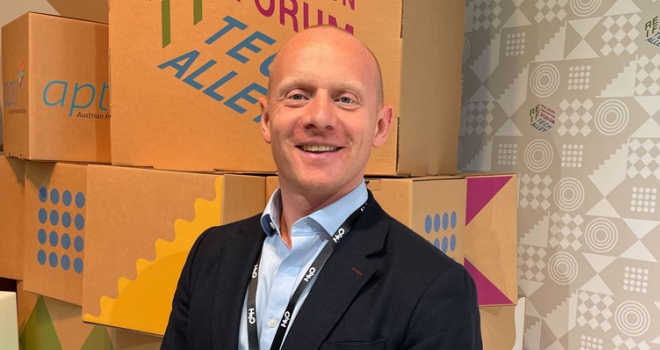
"The future of the real estate market lies in the convergence of innovative technology, data, and customer-centric experiences"
- Samuel Warren - HqO
This year, nearly 10 million sq feet of new office space is expected across London alone - higher than at any point in the past two decades. However, across the UK, total vacancy rates are at a 10-year peak and are expected to reach 9% in 2024.
With businesses struggling to convince employees that office working is the right route forward for the company, and for them, and as inflation also fuels a surge in service charges and rental values, especially in prime asset locations, commercial real estate (CRE) owners and operators need to act smart if they are going to fill office space. Simply put, high demand for best-in-class space means only quality spaces will win out.
How occupiers and their employees want to use space is rapidly changing. In response, CRE strategies must adapt so that spaces and resources cater to the preferences of the property end-users. In order to get people excited about leaving the comfort of their home offices, real estate has to excite people.
To do this, landlords need to stop thinking of real estate as a commodity, or a service. CRE is now all about experience.
What is Real Estate Experience?
The future of the real estate market lies in the convergence of innovative technology, data, and customer-centric experiences.
To boost occupancy and retention of occupiers, real estate owners and operators must put occupier experiences of the spaces they use at the centre of their strategy. They must prioritise how people want to engage with their space, the ways in which their real estate can enhance working lives, and how its use can evolve over time.
Leesman research of 30,000 employees globally found that 41% of employees only intended to be office-based once a week or less, amounting to billions of square feet of unused costly office space. Such pressures on capital expenditure are a real threat to profitability.
As such, it’s important that any real estate experience strategy aimed at bringing people back into the office is data-led and able to prove its return on investment (ROI). Working with the right partners to use technology in a way that makes it possible to assess, measure and act upon the health and performance of an end user’s experience within a space will help. It is these insights that will lead to higher occupier and employee engagement with space, and, ultimately, occupier retention.
The ROI Of Better Real Estate Experiences
Right now, and for the foreseeable future, CRE is an occupier-driven market. Occupiers need spaces that help attract, retain and motivate the best talent. According to Gallup, better real estate experiences can lead to 23% greater profitability and 18% higher productivity. A more meaningful connection with the physical and digital resources of the office - an experience better than home working - is key.
However, simple perks like covering commuting costs or free lunches only go so far. People want to feel supported in the workplace with the provision of easy-to-access amenities, simple-to-book events, activities and a space that helps build community.
This is especially important for younger professionals, many of whom started work during the pandemic. Leesman indicates that 40% of under-25s feel little connection to their organisation. With nearly three-quarters also having no dedicated home office setup, building a sense of belonging through a better real estate experience is essential. As such, real estate owners and operators must be prepared to fill these briefs.
For example, ARC, one of Europe’s leading networks for science and innovation clusters, recently deployed its new ‘Member of the Future’ campus experience app. Accessible to over 10,000 ARC members in the UK, the app enables users to experience the physical workspace in a much more engaging way.
Eighty per cent of people who have downloaded the app are already using it to book and discover events happening across the campus, manage gym and meeting room scheduling, as well as access exclusive offers. Simultaneously, ARC can now capture user data to gather insights on amenity performance to better plan future investments.
Using data to understand how people use space and having the technology to enable them to use it more effectively, is a game-changer in enhancing the appeal of property portfolios. Occupiers can also use this data to better understand what employees need to be successful in their roles, and how they are currently being supported.
For example, after reviewing space usage data supplied by HqO’s analytics platform, The Collection in Amsterdam significantly increased the square footage of its fitness facilities to accommodate increased demand from occupiers. Raising the bar with experiences like this is just one reason why The Collection’s app has an 82% adoption rate and rising.
What Real Estate Experience Are You Offering?
The pressure on all parties – from owners and operators to occupiers – is to fill office space. Core to this is the right technology and data that can create truly people-centric experiences in physical working spaces.
When assessing your CRE strategy, ask how your real estate experience offering compares to your competition. How is your real estate experience supporting your employees, and how is it contributing to overall company success and performance?
Getting it right will help create an environment that benefits everyone from the owners of the property through to the employees using it, and importantly, also help lead to longer-term occupancy.





